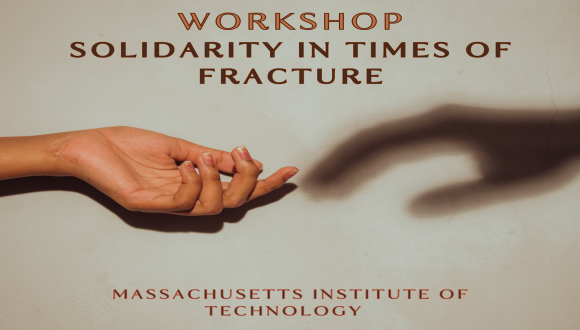Solidarity in Times of Fracture
Solidarity in Times of Fracture
December 12-13, 2024
Massachusetts Institute of Technology
Solidarity is a ubiquitous term in the literature on politics and policy, and it often invokes positive connotations, as a source of social cooperation and cohesion. Yet solidarity may also have a darker side, appealing to exclusive sentiments and supporting “us vs. them” rhetoric in the midst of economic and political upheaval. Recent years have seen growing interest in solidarity within both political philosophy and legal theory, alongside continued attention from political economists. Empirical scholarship has given us a sophisticated picture of how solidaristic coalitions shape policy and how those policies may encourage and shape solidarities in turn. Political theorists have taken steps toward integrating normative analysis and empirical research on how material conditions impact the contemporary prospects for solidarity. Legal scholars have examined some of the institutional preconditions and expressions of solidaristic action.
To date, however, there has been very little direct engagement between these three disciplines concerning the aims, enabling conditions, and institutional expressions of solidarity, as well as its distinct varieties. Such engagement is particularly urgent given conditions of rapid economic and technological change, growing inequality, and rising political extremism in both developed and developing democracies around the world. The combined effort of political theorists, political scientists, and legal scholars holds particular promise in thinking through not only how solidarity comes about, but also what purposes it serves and how our laws and institutions can support its more salutary forms. This could entail exploring the possibilities and the comparative advantages of solidarity on different scales, including both the subnational and the supranational levels, as well as solidarity based on different types of identity, from the local to the occupational to the political.
For registration please check here
Co-sponsored by the Edmond J. Safra Center for Ethics at TAU, the MIT political science department, and the MIT-Israel Zuckerman STEM Fund






